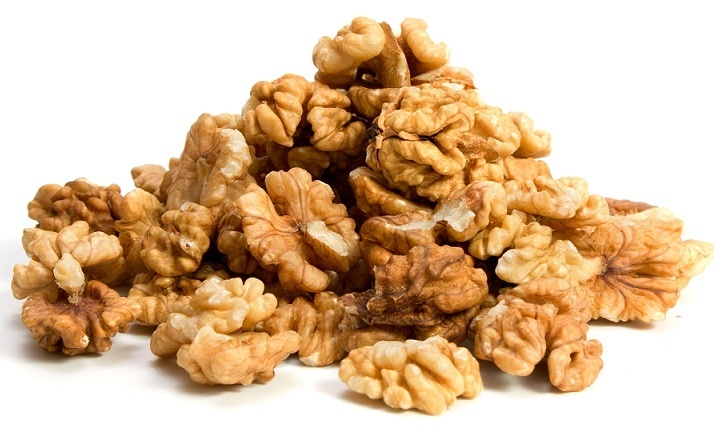Did you know certain genetic markers may influence food cravings and even poor feeding habits?
As research in nutrigentics (the study of how food and genes work) expands, studies are finding DNA may be the cause of food cravings, metabolism and other eating behaviours.
Understanding these factors may help explain why some people constantly reach for carbs, chocolate, or coffee, and why traditional dieting advice often falls short. Meaning, we may have the reason why food cravings are not always driven by willpower and genetics can play a significant role in snacking patterns.
Click here for more on crazy food cravings

DNA and Dietary Habits
Food choices are not only shaped by environment, emotions, or social media trends. Research suggests that genetic variations influence nutrient metabolism, appetite regulation, and how the body responds to specific ingredients. A 2021 review published in Nutrients found that specific genes are linked to differences in how individuals perceive taste, process macronutrients, and regulate hunger hormones.
Key genetic players include:
- FTO gene – Often called the “fat” gene, this variant has been associated with increased appetite and a greater preference for high-calorie, energy-dense foods. Individuals with this gene may feel hungrier more often and be more susceptible to overeating.
- TAS2R38 gene – This gene affects bitter taste sensitivity. People with certain variations may find vegetables like kale, broccoli, or Brussels sprouts unpleasant, making healthy eating feel more challenging.
- SLC6A4 gene – Involved in serotonin transport, this gene is associated with emotional regulation. Some studies suggest that variations in of this gene may make individuals more likely to engage in emotional eating, especially during times of stress or hormonal shifts.
These genetic tendencies may partially explain why some individuals struggle to maintain dietary consistency or why certain foods provide a stronger sense of satisfaction than others.
Why Carbs Offer Comfort
Carbohydrates are frequently blamed for weight gain and cravings, but they serve an important biochemical function. In individuals who experience dips in serotonin, carbohydrates can act as a temporary emotional stabiliser. Eating carbs triggers an increase in serotonin production, which may provide feelings of calm and contentment.
For those with heightened sensitivity to serotonin fluctuations, such as during PMS or stressful periods, carb cravings may intensify. Rather than being a sign of weakness, this response could be the body’s natural attempt to restore hormonal balance.
Some people have a genetically determined lower ability to metabolise glucose efficiently. This can result in blood sugar highs and lows that lead to energy crashes and more cravings a cycle that can feel impossible to break without understanding.
Click here for more on sweet cravings.

Caffeine and Sugar Sensitivity
The CYP1A2 gene controls how quickly caffeine is broken down in the liver. Fast metabolisers process caffeine quickly and feel its effects for a shorter duration, while slow metabolisers experience longer-lasting stimulation. For the latter group, even a small coffee can cause increased anxiety, restlessness, or disrupted sleep.
When paired with sugar sensitivity, this genetic combination can leave individuals feeling overstimulated and emotionally depleted. The body then craves more sugar or carbs in an effort to rebalance mood, creating a cycle that is difficult to manage without tailored strategies. Not sure what you can be snacking? Check out this article for help finding good snack options.
Food, Mood, and Genetics
Eating is not just a conscious choice, it’s a biological conversation. Cravings, preferences, and habits are shaped by a blend of nature and nurture. Recognising that certain behaviours are genetically influenced can reduce food guilt and lead to more sustainable, personalised nutrition strategies. Even the smallest habits could be done unintentional. If your parents don’t like fruits and vegetables and never pushed you to try them you might have be falling in the same patterns without even noticing.
Practical Takeaways
While genetic testing can offer deeper insights, many individuals can benefit simply by becoming more aware of their own behavioural patterns. Identifying recurring tendencies such as craving sweets during stressful times or reacting strongly to caffeine can be the first step in building a more intuitive relationship with food.
Rather than following one-size-fits-all diet advice, individuals might consider these small, supportive shifts:
- Opt for complex carbohydrates (like oats or sweet potatoes) instead of simple sugars to maintain energy and support mood.
- Pair carbohydrates with protein or healthy fats to stabilise blood sugar and extend satiety.
- Replace coffee with green tea or matcha if sensitive to caffeine.
- Choose foods rich in magnesium and B vitamins, which support mood regulation and energy production.
















